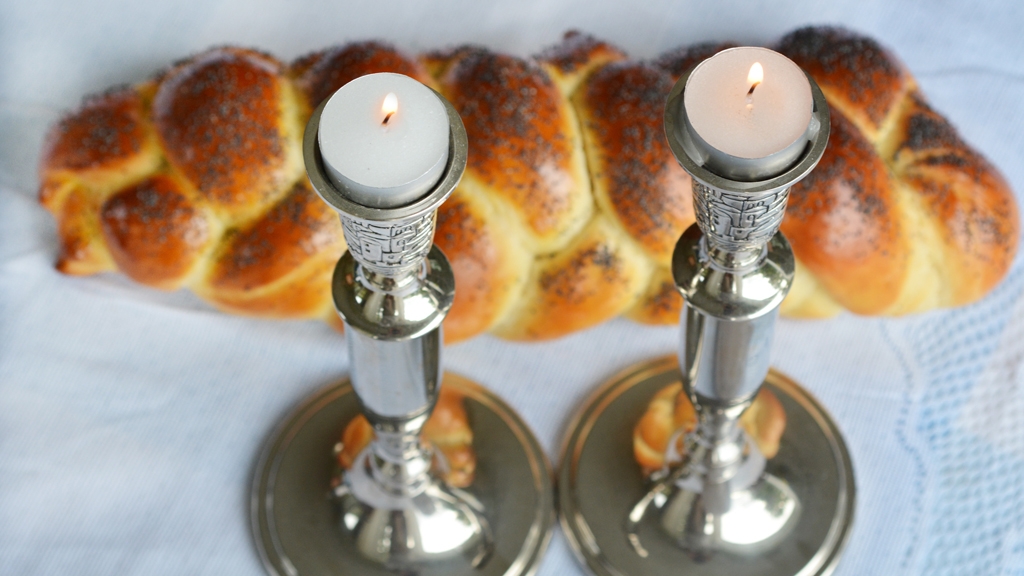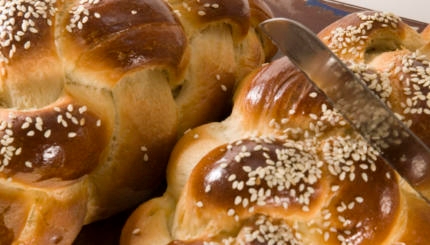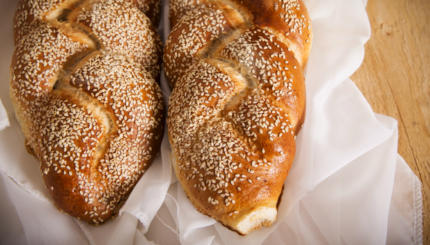Question: Why are people silent between washing hands before a meal and saying the blessing over bread?
Jamie, Hudson NY
Answer: Ah, so you’ve experienced that awkward silent period before hamotzi? It is traditional in observant Jewish communities that before eating bread, hands are washed and a blessing is said over the hand washing. Then, the blessing is said over bread (challah, for instance), and the meal begins. There is no talking between hand washing and bread eating (but some people use very enthusiastic hand gestures). Why no talking? Well, the theory is that one shouldn’t delay between washing hands and eating bread. By talking, you might hold things up.
The idea of minimizing any delay comes from the Babylonian Talmud, Berakhot 42a, where it says: “Rabbi Hiyya bar Ashi said in the name of Rav: Three things should follow immediately one on the other… The blessing should follow immediately on the washing of hands.” Most commentators (including Rashi and the Tosafot) on this section understood that “the blessing” in question is the grace after meals, and “the washing of the hands” in question is the ritual hand washing that some people do after meals. But the Rosh, a 14th-century German rabbi who wrote an extensive commentary on the Talmud, opined that the blessing in question is hamotzi, the blessing over bread, and the hand washing is the washing done before a meal, not after.
Like the Rosh, the Shulchan Aruch, a 16th-century code of Jewish law, suggests that it is a good idea to go straight from washing hands to eating bread. But the Shulchan Aruch does not specify that one must stay silent between the two blessings.
So the key thing is to try to get from the hand washing to the bread eating without lots of lag time between (that way, your hands will still be reliably clean when they touch food). One way of expediting the whole process is to eliminate the chitchat. This tradition of silence between the two blessing is just that — a tradition, not a law. If you talk, it’s not a big deal, and it doesn’t nullify the blessing you said when washing your hands. But you should be sure that any talking you do doesn’t get in the way of moving everyone right along to the eating portion of the meal.
With your help, My Jewish Learning can provide endless opportunities for learning, connection and discovery.
All that said, if you’re a guest at a meal, and your hosts have the custom of not speaking between the two blessings, it’s certainly a good idea (not to mention the polite thing to do) to abide by their custom and stay quiet from when you’ve washed your hands until you’ve eaten your piece of bread.



